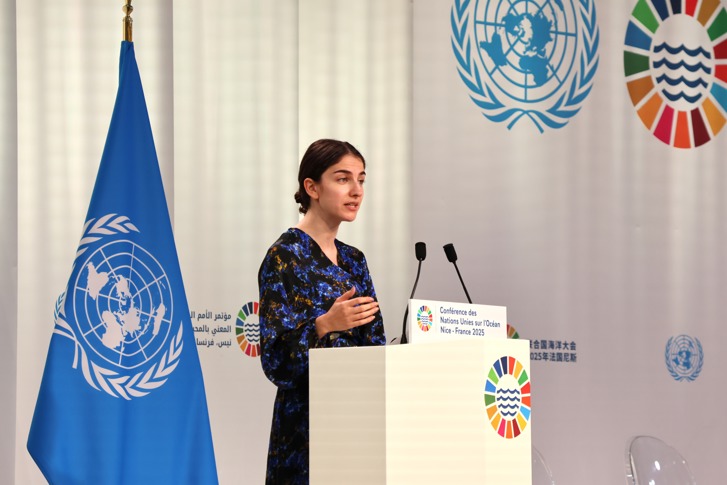Sweden's national statement to the third UN Ocean Conference (UNOC-3) was delivered by Minister for Climate and the Environment Romina Pourmokhtari in Nice, France, 10 June 2025

- Check against delivery -
Excellencies, Distinguished delegates,
Friends of the Ocean,
We extend our sincere gratitude to the Governments of France and Costa Rica for hosting the third United Nations Ocean Conference.
We must all stay committed to the sustainable development goals and to the UN multilateral agreements. We must all stay committed to effective multilateralism, the respect for international law and a rules-based international order.
With accelerating climate change, biodiversity loss and increased pollution the need for action for our oceans is urgent. An international legally binding instrument on plastic pollution based on the full lifecycle of plastic must be reached.
I am proud to announce that The Swedish Parliament has adopted the Government´s Bill A living sea – Increased protection, reduced eutrophication and sustainable fishing.
The Bill affirms the ecosystem approach as a fundamental guiding principle for marine policy. This approach becomes more important everyday
Following my initiative the Swedish Government is taking strong action including firm measures to combat eutrophication in the Baltic Sea. We ban bottom trawling in marine protected areas in coastal waters and expand marine protected areas to contribute to the global target of protecting 30% of the sea by 2030. Action must be taken from source-to-sea.
The European Union manifest commitment through the European Ocean Pact. Cooperation through the regional seas conventions is necessary.
Sweden’s shipping sector is driven by innovation and collaboration to accelerate commercially viable solutions to meet climate and sustainability goals. One of our voluntary commitments is that from this year, Sweden is banning scrubber discharges in our territorial waters. We urge other states to take steps to ban or limit these harmful discharges.
We must remain firmly committed to financing for development and maximize synergies between development cooperation, private and institutional investments, trade and innovation. The broadening of the donor base is critical to mobilize resources.
Sweden is proud to be the largest per capita contributor to the Global Environment Facility, GEF. We urge others to contribute. Through GEF we have reduced climate emissions, created vast marine protected areas and stopped waste at scale from entering the ocean.
We support the UN Ocean Decade to strengthen science-based decision making, accelerate ocean literacy and further ecosystem based marine spatial planning.
We must also remain committed to end illegal, unregulated and unreported (IUU) fishing and encourage WTO Members to deposit their instruments of acceptance of the WTO Agreement on Fisheries Subsidies. The recently adopted OECD Recommendation on Eliminating Government Support to IUU Fishing is crucial. We need commitment to implementation of an ecosystem-based approach to fisheries management to minimize negative impacts of fishing activities on the marine ecosystem.
The BBNJ Agreement is the first international legally binding instrument addressing the conservation and sustainable use of marine biological diversity in the high seas, and a necessary tool to achieve the objective of protecting 30% of the ocean´s surface by 2030.
When 193 states supported its adoption, it was a testament of multilateralism. Sweden signed the agreement in September 2023 and aims to ratify and implement the agreement as soon as possible and no later than September 2026.
Finally,
The UN Convention on Law of the Sea (UNCLOS) provides us with the legal framework within which all activities in the ocean and seas must be carried out. It is one of the most significant and visionary multilateral instruments ever created.
The International Seabed Authority (ISA) is the competent body to organize, regulate and control activities related to the mineral resources of the Area. Sweden believes that seabed mining in areas beyond national jurisdiction should not be granted until there is sufficient knowledge to assess the environmental consequences of such extraction, and a robust environmental framework in place, in line with the precautionary principle.
Thank you.